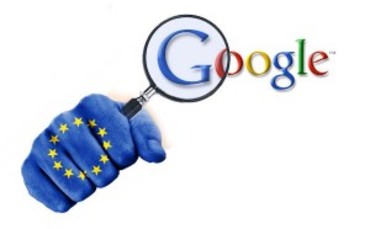The strangely named Rockstar Consortium has been in the news again, in part because some of its members just formed a new lobbying group, the Partnership for American Innovation, aimed at preventing the current political furor over patent trolls from bleeding into a general overhaul of the U.S. patent system. Yet Rockstar is perhaps the most aggressive patent troll out there today. Hence the mounting pressure in Washington, DC for the Justice Department’s Antitrust Division — which signed off on the initial formation of Rockstar two years ago — to open up a formal probe into the consortium’s patent assertion activities directed against rival tech firms, principally Google, Samsung and other Android device manufacturers.
Usually the fatal defect in antitrust claims of horizontal collusion is proving that competing firms acted in parallel fashion from mutual agreement rather than independent business judgment. In the case of Rockstar — a joint venture among nearly all smartphone platform providers except Google — that problem is not present because the entity itself exists only by agreement among its owner firms. The question for U.S. antitrust enforcers is thus the traditional substantive inquiry, under Section 1 of the Sherman Act, whether Rockstar’s conduct is unreasonably restrictive of competition.
Despite its cocky moniker, Rockstar is simply a corporate patent troll hatched by Google’s rivals, who collectively spent $4.5 billion ($2.5 billion from Apple alone) in 2012 to buy a trove of wireless-related patents out of bankruptcy from Nortel, the long-defunct Canadian telecom company. It is engaged in a zero-sum game of gotcha against the Android ecosystem. As Brian Kahin explained presciently on DisCo then, Rockstar is not about making money, it’s about raising costs for rivals — making strategic use of the patent system’s problems for competitive advantage. Creating or collaborating with trolls is a new game known as privateering, which allows big producing companies to do indirectly what they cannot do directly for fear of exposure to expensive counterclaims. Essentially, it’s patent trolling gone corporate. As another pro-patent lobbying group said at the time, Rockstar represents “a perfect example of a ‘patent troll’ — they bought the patents they did not invent and do not practice; and they bought it for litigation.” Predictiv’s Jonathan Low put it quite well in his The Lowdown blog:
The Rockstar consortium, perhaps more appropriately titled “crawled out from under a rock,” is using classic patent troll tactics since their own technologies and marketing strategies have fallen short in the face of the Android emergence as a global power. Those tactics are to buy patents in hopes of finding cause, however flimsy, to charge others for alleged violations of patents bought for this purpose. Rockstar calls this “privateering” in order to distance itself from the stench of patent trolling, but there are no discernible differences.
Continue reading Rockstar’s Patent Trolling Conspiracy

 Three years later,
Three years later, 